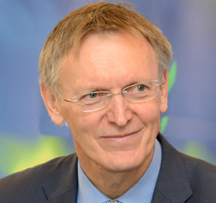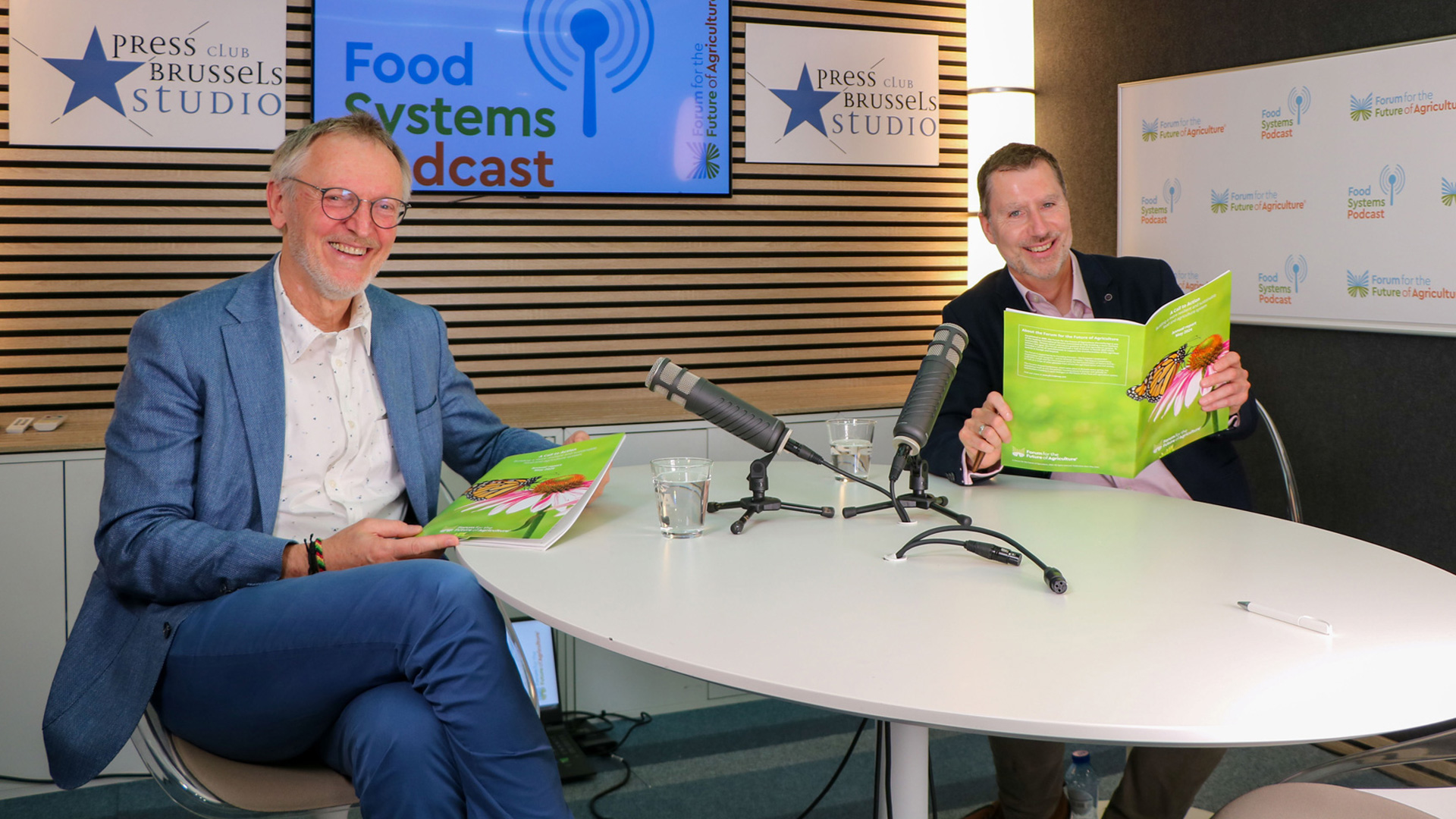Podcast 59 (audio & video)
In discussion with Janez Potočnik
Monday, Jul 15, 2024
In this episode, Janez Potočnik shares his reflections on the climate and biodiversity challenges and the current political environment. He also looks to the future for the development of new ideas and thinking that can provide the necessary solutions for the transformation of the agri-food system to one which is resilient, sustainable, nature positive and climate smart. This podcast is available on video or audio by clicking here.
Here is a summary of the conversation.
We live in “interesting” – or rather, tumultuous – times. What progress are we making, in particular on tackling climate change? What surprises and concerns you? And why is action needed urgently?
There are serious challenges and the most critical is climate change. It’s had a lot of policy attention – but with limited success. In 2023, CO2 emissions were their highest ever and we’ve already reached the 1.5°C limit. It will get worse. But I don’t see many people panicking.
You can see the economic impact – take my country, Slovenia. The bill for compensation for extreme weather and flooding hit 16.9% of the country’s annual budget: less money for education, health and other things.
We give a lot of attention to the energy transformation and technological development, but we don’t discuss our material footprint enough. How are we using resources? If you provide humans with cheap, abundant energy, even if it’s renewable, it’s a licence to kill. As one environmental journalist said, “the species causing the extinction of 100 species a day does not need more energy to do that”.
We need to combine three elements: supply side (the energy transition); demand side (decoupling economic growth from resources used); and nature-based solutions (currently under-used). A lot of good is happening, but it’s important to broaden the strategy.
So why isn’t there panic in the streets?
It’s surprising there isn’t, but our economic system is organized for us to profit in the current moment and push the cost to the future. So it’s a moral choice.
This is a year of elections, including the European Parliament. How is that being reflected in political debate? What are the priorities?
All of us aspire to a safe, predictable, secure future. But in our current environment, we’re losing that safety which turns our focus away from the long-term to the here and now. We can see how that leads to less tolerant behaviour. Politicians don’t necessarily listen to the shouts from the street, and they sometimes default to short-term crisis management – like stepping back from some European Green Deal commitments. The situation calls for clear and brave policymaking, based on science.
Europe is the number two market globally but when it comes to geo-strategic voice, we are not heard appropriately. To be heard we need to join our forces in three areas – fiscal policy, foreign policy and security policy.
Looking at the agri-food sector, where does it need to focus in the next five years or so?
The starting point is that farmers deserve a fair reward for their work and a stable and secure future. It doesn’t feel like that currently. There are contradictions to be overcome. We want seasonal, regional food production but Europe is a main protector of globalization and free trade. Externalities need to be priced in, but on the other hand governments want to hold food prices. Farmers have political power, but not market power which is in the hands of big industry.
It’s clear we need systemic change. How do we orchestrate both private and public actors to act differently and deliver the kind of change we want?
It’s critical we change the order: how can we meet human needs in the most resource and energy efficient way, not how can we maximize products and services and GDP. At the Forum we have always created a space to bring people together, and now it’s moved from only looking at agriculture to looking at the whole food chain. And that’s what we say in our Call to Action which we recently published.
We’re coming to the summer break, so what are you optimistic about and what keeps you awake at night? And what homework should we do over the summer?
It’s difficult nowadays to be science-based and optimistic! My major concern is the simplistic logic behind “greening”. It’s not good for economics; solutions are much more complex.
I’m optimistic that the critical mass of people who understand and are committed to change is increasing. And it’s optimists who change the world. And for the homework – take a good rest, get away from the daily bombardment and the manipulation, and let your mind be refreshed.
If you have found this short summary interesting, there’s lots more to hear in the full conversation. It is available now as an audio podcast on iTunes, Podbean or Spotify or as a video on this website.

Janez Potočnik
Dr Janez Potočnik graduated from the Faculty of Economics at the University of Ljubljana, Slovenia. After a successful career...see more

